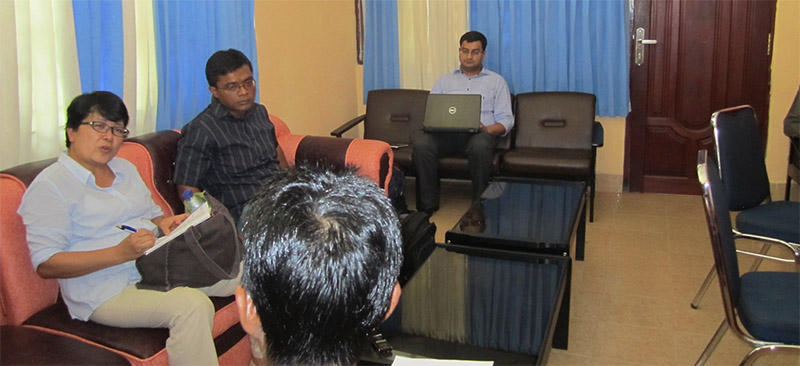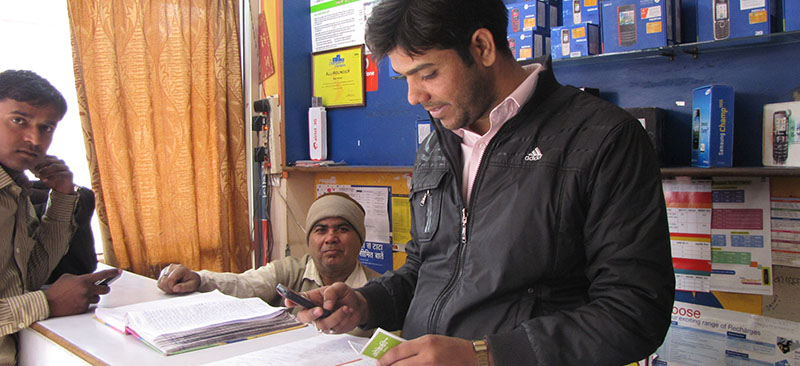In Indonesia, over 20% of youth are neither in school nor employed, and over 50% of youth in the labour market are unemployed or underemployed. MicroSave conducted market research to understand the needs for financial products and perceptions of existing financial products amongst the youth of central Java. MicroSave’s Product Development Framework was used to design a suite of client responsive products. Major financial stress points and aspirations of the youth were assessed. The team further segmented the market based on age and marital status. The preference of the segments were analysed using a segment preference matrix. Finally the team suggested a mix of products to be piloted for the youth.
Blog
Understanding Demand for Financial Products among the Youth of Central Java
In Indonesia, over 20% of youth are neither in school nor employed, and over 50% of youth in the labour market are unemployed or underemployed. MicroSave conducted market research to understand the needs for financial products and perceptions of existing financial products amongst the youth of central Java. MicroSave’s Product Development Framework was used to design a suite of client responsive products. Major financial stress points and aspirations of the youth were assessed. The team further segmented the market based on age and marital status. The preference of the segments were analysed using a segment preference matrix. Finally the team suggested a mix of products to be piloted for the youth.
Youth-Inclusive Financial Services (YIFS): Lesson & Key Considerations (Part II)
Youth between 10 – 24 years of age constitute 1.77 billion (27% of the total global population). This constitutes a huge potential market for FIs seeking to extend financial services to the youth. MicroSave together with the Population Council have been managing – The Safe and Smart Savings Products for Vulnerable Adolescent Girls (SSSVAGs) project – implemented in Kenya and Uganda. The project, among other objectives, seeks to extend financial services and build financial capability amongst young girls 10 – 19 years of age. Under this project, savings products were designed specifically for the adolescent girls using MicroSave’s systematic product development approach which begins with market research to understand the target clients’ current financial behaviour, needs, coping mechanisms, gaps and preferences. This Note presents key lessons learned from this project, on youth-inclusive financial services using the “8Ps of marketing” as a framework. The lessons, derived from the success and challenges experienced, offer an opportunity to inform future YIFS programmes.
Banks: The Preferred Remittance Services
This Note discusses the features of two agent-based remittance models introduced by banks: 1. Direct remote deposit into a bank account from business correspondent agent (BC agent) location (referred as direct deposit); and 2. Money transfer between two no-frills savings accounts (NFA). It concludes that with a well explored and researched strategy focussing on customer service and agent satisfaction, banks can service significantly higher number of remitters and receivers with a safe, fast and trusted remittance product/channel.
Youth-Inclusive Financial Services (YIFS): Lesson & Key Considerations (Part I)
Youth between 10 – 24 years of age constitute 1.77 billion (27% of the total global population). This constitutes a huge potential market for FIs seeking to extend financial services to the youth. MicroSave together with the Population Council have been managing – The Safe and Smart Savings Products for Vulnerable Adolescent Girls (SSSVAGs) project – implemented in Kenya and Uganda. The project, among other objectives, seeks to extend financial services and build financial capability amongst young girls 10 – 19 years of age. Under this project, savings products were designed specifically for the adolescent girls using MicroSave’s systematic product development approach which begins with market research to understand the target clients’ current financial behaviour, needs, coping mechanisms, gaps and preferences. This Note presents key lessons learned from this project, on youth-inclusive financial services using the “8Ps of marketing” as a framework. The lessons, derived from the success and challenges experienced, offer an opportunity to inform future YIFS programmes.
Taking Financial Inclusion to the Next Level
Banks and business correspondents (BCs), under the policy and regulatory directions, and supervision of the Reserve Bank of India (RBI) and the Ministry of Finance (MoF) are making concerted efforts towards financial inclusion (FI).
In January 2012, MicroSave facilitated a dialogue amongst select banks, and institutional/MNO (mobile network operator) BCs to reflect on the progress made, the lessons learned, challenges faced and identify critical areas needing attention and collaborative efforts. It emerged that the sector has reached a critical inflexion point, where certain actions are inevitably required to take financial inclusion to the next level. These are essentially around developing BC as an additional banking channel; driving viability and making BCs sustainable through various interventions and risk mitigation mechanisms; and coherence of policies and directives from various quarters.





